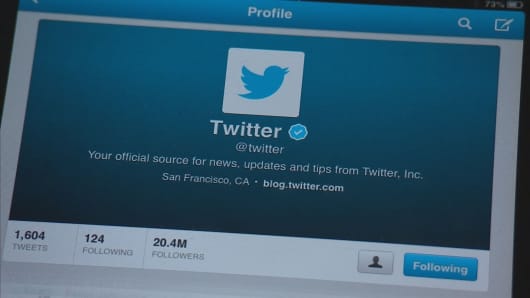- Tesla CEO Elon Musk and President Donald Trump do not share similar views of the future, particularly on energy policy.
- However, both have become masters of using Twitter to exploit a basic mass psychology phenomenon that experts call tribalism.
- The internet and social media are leading psychologists into unresearched areas where basic research findings about human behavior may be reinforced and intensified.
On the surface Elon Musk and Donald Trump’s core demographic audiences couldn’t be more different.
Musk, the Tesla CEO and co-founder, represents dreamy ambitions for a better world centered on renewable energy. Trump appeals to a more conservative America, with hopes of making the country “great again” by reviving 20th-century manufacturing and energy industries, including steel and coal, and reversing decades of environmental legislation.
But however idealistically different, the two billionaires share a mastery of one thing: A mass psychology effect that has been studied for decades by researchers and is now being retested through the online laboratory of Twitter. It’s called tribalism.

Jaap Arriens | NurPhoto | Getty Images
While some would argue that the billionaires’ eruptions on Twitter are counterproductive — limiting their reach rather than finding the largest possible audience — psychology experts suggest the strategy works exactly as it should, and Twitter is merely the latest and largest study group for a phenomenon that has long been known to scientists.
Experts who study the psychological dynamics of “tribes” — groups that hold a family-like, emotional connection and ideology — say Musk and Trump have used similarly strong and extreme online rhetoric to galvanize massive and unwavering fleets of supporters.
“It goes all the way back to pretty basic studies of group behavior, where people would join together with a mob of people and do things they wouldn’t normally do, that weren’t right, that were too extreme,” said social and personality psychologist Don Forsyth of the University of Richmond’s Jepson School of Leadership Studies. “Now that same process, that kind of mob behavior, is playing out on the internet.”
Studies have shown that human beings have an evolutionary drive to form distinct social groups as part of self-identification. Individuals discern themselves as members of many groups or tribes: their families, race, religion, political parties, gender, social organizations and residence. Not surprisingly, evidence also shows that individuals respond more positively to group members versus out-group members in order to strengthen their sense of belonging.
“Social media just puts our tribal psychology on steroids.” -Jay Van Bavel, associate professor of psychology and neuroscience at New York University
The politics, at least when it comes to Musk, remain somewhat murky. In a recent tweet, he described himself as “a utopian anarchist of the kind best described by Iain Banks,” a Scottish novelist who published science fiction.
Less than a week prior to the 2016 presidential election, Musk criticized Trump, saying “He doesn’t seem to have the sort of character that reflects well on the United States.” But in the months following the president’s victory, Musk accepted an offer to join the Trump administration’s economic advisory council, drawing large criticism. Musk defended his decision, saying that his access to the commander-in-chief could help change Trump’s mind on issues where they disagreed. But the tech mogul’s gig at the White House lasted till June 2017, following the president’s decision to withdraw the United States from the Paris Climate Agreement. “Am departing presidential councils. Climate change is real. Leaving Paris is not good for America or the world,” Musk tweeted.
More recently, Musk was criticized for donating $38,900 last month to Protect the House, a committee with the goal of preserving a Republican majority in the U.S. House of Representatives. Musk didn’t flat deny the donations, but took to Twitter to recuse himself of being a “top donor” to the GOP. He stressed his environmental and human rights positions and that he has donated to both parties as an “independent” who wants to maintain an “open dialogue.”
Play Video

For psychologists, Musk’s political beliefs matter less than the medium and the mass mobilization, and experts say Musk’s extreme rhetoric is working to galvanize his following, mirroring Trump. Psychologists believe social media has intensified this phenomenon by connecting individuals on a previously impossible scale of millions.
“At the click of their cellphone, people can signal their identity to hundreds or thousands of people by rewarding in-group members or punishing out-group members,” said associate professor of psychology and neuroscience Jay Van Bavel of New York University, in an email. “Social media just puts our tribal psychology on steroids.”
Last week Musk made headlines when he lashed out at British cave diver Vernon Unsworth, calling him “pedo guy” on Twitter. Unsworth was one of the foreign rescuers who played a critical role in saving the 12 boys trapped in an underwater cave in Thailand. Musk had offered support for the rescue mission, sending a kid-size submarine, which Unsworth said in a CNN interview “has absolutely no chance of working,” sparking Musk’s Twitter outburst.
One key group that Musk needs to retain was not at all happy: institutional investors who hold a majority of Tesla shares. The now-deleted tweets spooked investors, sending Tesla shares tumbling, and investors issued public comments upbraiding Musk and pleading with him to use social media less, as has been the case with White House advisors counseling Trump, according to many press reports. But in order to feed and grow an immense cultlike following, that advice may be as difficult for Musk to adhere to as it is for the president.
“The success of Tesla is influenced substantially by people’s faith in Musk. And in this day and age — and with our own president leading the way — Twitter is the way to create that public presence.” Forsyth said. “Important people use Twitter and they have many, many followers.”
A ‘literal’ defense that supporters offer for Musk and Trump
Even as Musk took a heap of backlash from investors, his Twitter followers mobilized to his defense, quick to find humility in Musk’s behavior, saying that it’s “human nature” to “hit back,” while also suggesting that Musk’s language was wrong. Musk supporters even used a common defense among Trump supporters, arguing that he didn’t really mean what he said “literally.”
Prominent Silicon Valley billionaire investor Peter Thiel, who along with Musk is a member of the original “PayPal mafia,” defended his high-profile support of Trump right before the election by saying that the media’s mistake was to take Trump literally rather than seriously.
“No matter what Trump says or Musk says, if they have built a real tribe, it doesn’t matter. To maintain the adherence of their supporter to some degree it’s less about content and more about emotional connection,” said Daniel Shapiro of Harvard Medical School. “The tribe gives us a sense of safety. It gives us a sense of security. We know that our identity is being protected through that tribe,” Shapiro said.
Van Bavel echoed Shapiro’s sentiment, saying that tribalism can lead to the vehement support of leaders like Trump or Musk, even when there is clear evidence that they exercise poor judgment. “Once people identify strongly with a leader or party, they are motivated to distort their beliefs to support them,” prompting individuals to look past Musk or Trump’s atypical behavior.
The results of a recent Politico/Morning Consult poll found that a majority of Americans, 62 percent, disapprove of the president’s Twitter use, but there is a large discrepancy between Republicans and Democrats. Only 38 percent of Republicans say the president’s Twitter use is “a bad thing,” versus 84 percent of Democrats. Experts also warn that combative criticism of leaders like Musk or Trump only fuels their base of supporters. They explain that tribes create a mentality of “an attack on one, attack on all.”
With a growing emphasis on social media across politics and business, academics expect this mentality to intensify in the future.
“The internet, the evolution of technology, is leading us into unresearched areas for psychologists and social psychologists, but it’s not going away. If we really want to generalize, will it create more tendencies for people to polarize? Will people become more committed to their groups and cause more antagonism between groups?” Forsyth asked. “I would be afraid that’s likely.”
